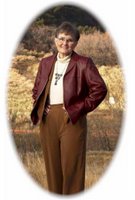JK: Lewis and Clark

Historical stories help us discover a part of our past we never knew we lost. In the process of writing or painting or taking a photograph, we recreate memory and so recreate experience. Experience. A word defined in the dictionary as “the present.”
In my historical novels, I’m not trying to rewrite history but to explore a history I didn’t actually live to see what it might have to tell me about my life now. Consider what we know of memory into the journals of Lewis and Clark and weave it into the historical accounts. Most of the notes were written while on the trail but compiled later, after their return. We have commentaries of their journey. People who had access to the actual notes of Lewis and Clark and others who made recordings of the Corps adventures wrote a few of those books. Yet one thing is consistent throughout: that of all the encounters they had with Indian people, with rare exception, the foreigners – Lewis and Clark -- were met in kindness, with dignity and grace. They were treated with dignity and respect. I termed it being met as “family” a word that comes from the Latin word famalus, meaning servant.
Almost every aspect of the Lewis and Clark journey has been written about in these 200 years since. Except this one: the memories of the native peoples. These have gone unshared until now. Their memory of events looks quite different.
I suppose that’s one reason why my novels explore the lives of native peoples as well as settlers; of those of mixed blood as well as blue-bloods: because I want to see a wider story and to consider what those stories have to tell me about my own history.
No, such stories and explorations will not change the past. But it can change the memory of the past and in so doing, change the present, our experiences today.
As we approach this season of Thanksgiving, another time when Indian people acted as servants and family to foreigners in their land, this thought comes to mind: Writers of historical fiction will tell you that it is not just through the “facts as we know them” that richness and texture of story are told, but in transporting readers to their own stories, to their own lives, to answering their own questions of meaning and memory. How do we behave with our neighbors today? How can we stand by while the food bank grows empty? (Have I taken anything in to the collection site yet this month?) How will those still living under the bridge keep warm in this winter? Who will extend dried salmon to a foreign people as the Wasco and Umatilla and Yakima and Nez Perce people did? And what does it say about me and my memory of who I am and who I wish to be whether like them, my hand is extended out or stuck inside my pockets, jingling change?
In this season of giving and thanks giving, may you be surrounded by family, by being in service; and may all your memories be those you care to share.
Jane Kirkpatrick, www.jkbooks.com



3 Comments:
Wow, you've really put things in a different perspective for me.
Hi, Jane. Great blog entry! (We recently emailed about my column, "Jots," in the FHL ezine.)
I love what you said in your blog entry: "In my historical novels, I’m not trying to rewrite history but to explore a history I didn’t actually live, to see what it might have to tell me about my life now." That is sooo good. It's making me do some deep thinking about my own writing.
Thanks again. God bless--
Kristy Dykes
Jane wrote: <"I want to see a wider story and to consider what those stories have to tell me about my own history.")
_____
Great quote, Jane, in an excellent post (as always).
BJ
Post a Comment
<< Home